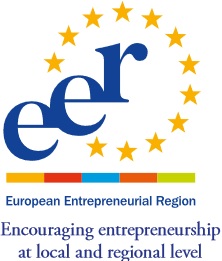 newsitems
newsitems  ECHR Chief Registrar Liddell to EF on Discretionary Power's Decision-Making Process' control
ECHR Chief Registrar Liddell to EF on Discretionary Power's Decision-Making Process' control
ECHR Chief Registrar Liddell to EF on Discretionary Power's Decision-Making Process' control
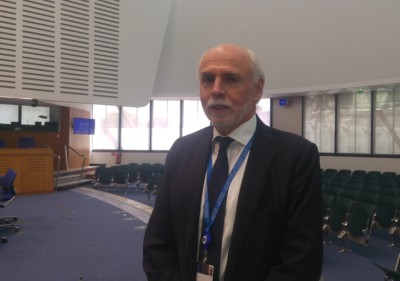
*Strasbourg/CoE/Angelo Marcopolo/(Partly UPDATED)/- Replying to an "Eurofora" Question on the Judicial Control of Public Administration's Discretionary Powers, and, particularly, if and when, according to ECHR's case-law, this should include, or not, a part of Supervision on the way that they take into account concerned Citizens' relevant arguments, in order to adequately Reply to them, (in a kind of Procedure of Dialogue between Citizens and State, or "Controle du Processus Decisionel" in French), ECHR's Chief Registrar, Roderick Liddell, who has a very Extensive Experience of the PanEuropean Court's work since several Decades, after Studying Law at Oxford University and working as Legal Expert, Assistant to ECHR's President, Chief of Press/Communication, Head of Strasbourg Court's General Services, and Elected on December 2015 as Registrar responsible for about 600 Legal and Administrative Staff at the ECHR, appeared Both Positive and Pedagogically crystal-clear, on the Substance of that matter :
+ And, Surprizingly, a Long Series of ECHR's Judgements Published just Yesterday in Strasbourg, seems to consistently Support, with Concrete Evidence, at least the Main Thrust of Roderick Liddell's Replies to "Eurofora"s Questions, concerning Human Rights and the Judicial Supervision of Public Authorities' Discretionary Powers, as we shall see Infra...
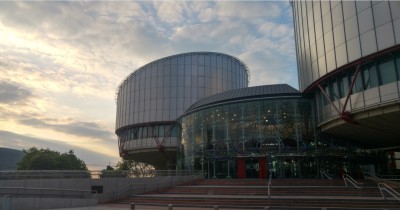
- "I think, that There has Always been this Procedure Element", he surprisingly told us, from the outset, adopting a quite original approach.
- indeed, "for me, Procedure has a Role to Play in almost Every Article of the (PanEuropean Human Rights') Convention !", he stressed. "It has Always been a Procedure Element. There has always been an important Procedure Dimension".
- "Because, part of the Aim of the Convention is to Create a Situation where Applicants can obtain Redress in their Domestic System".
- "So that involves having the necessary Procedures and Structures in place, to be Able to pursue the Verification of Conventions' complaints at National level".
- "Part of it is to have procedures in place which are Able to Ensure that, when the Convention is examined at National Level, then, the National Authorities go through the Necessary Process of Taking into Account the Competing Interests, in the Light of the Strasbourg's Case-Law".
- "It's a Question of Procedures Affecting the Settlement", he Positively replied to "Eurofora"s secondary Question if this really includes also the Exchange of Arguments (in a kind of Dialogue, or "Procedure Contradictoire" in French) with the concerned Citizens.
- "If you see f.ex. at Article 8 (protecting Private/Family Life), ECHR's case law Requires that when it looks if National Authorities have Examined the Issue of Proportionality, then, the Question of the Existence of that Procedure, and the Course of that Procedure are in there...", he pointed out in conclusion,
(Stressing particularly that Last Point on the "COURSE" of that "Examination Procedure", which seems, indeed, Similar to what we call in French : - "Contrôle du Processus Decisionel", or, alias : "Checking the Decision-Making Process", even in cases of Discrerionary Power detained by Public Authorities).
Liddell spoke to "Eurofora" on the Sidelines of the Official Ceremony, Headed by CoE's Secretary General, Thornbjorn Jagland, for the Award of Prizes won by the Best Teams competing at the Final Round of the European Law Students' Association (ELSA) Annual Moot Court contest, in ECHR's Headquarters, at the 10th Anniversary of its regular Cooperation with the CoE, Hailed this year by the Chairman-in-office of the PanEuropean Organisation's Highest Political Body : that of its Committee of Ministers, Danish Ambassador/Permanent Representative to the CoE, Arnold de Fine Skibsted, after a Strong Competition between a Hundred of Registered Universities from all around Europe, among which, 19 were invited to Strasbourg for the Final Round, won by Spanish IE University (Madrid), facing London's Kings College (which got the 1st Individual Plaidoyerie prize, instead, See : http://www.eurofora.net/newsflashes
Both this CoE-ELSA English Speaking Moot Court Competition, and the Equivalent, French-Speaking Contest at ECHR organized by the International Institute for Human Rights "René Cassin", (very Popular in Strasbourg : See "Eurofora"s NewsReport from its Recent, 2018 Awards, at: http://www.eurofora.net/newsflashes/news/whistleblowersatrenecassinechrcontest.html), are notoriously Focusing mainly on Developing the Capacity of those Representing a respondent State, and/or one or more Applicant Citizens, to Exchange Facts and/or Arguments, in relation with ECHR's case-law Principles.
--------------
+ By a timely Coincidence, this week, ECHR has just Published a Series of various New Judgements, concerning Different States and Different aspects of key Human Rights, (f.ex., unreasonable Delays in Length of Proceedings, InHuman/Degrading Treatments, etc), which all Focus mainly on a Similar Key-Point:
- Always in these Cases, ECHR consistently reiterates, indeed, that: EuroJudges have "Examined all the Material Submitted" to the Court by the Parties, (i.e. the applicant CITIZENS and the respondent STATE), but have "Not found any FACT or ARGUMENT Capable of PERSUADING" them, "to Reach" this or that "Conclusion" on this or that Concrete Human Rights' Legal Issue, "Regard(ing)" ECHR's "Case Law on the subject" concerned there.
=> I.e., ECHR obviously evokes a kind of DIALOGUE, Between Citizen and State, using Facts and Arguments, capable of Persuading, in order to Reach this or that Conclusion, on Human Rights, regarding ECHR's Case-Law principles :
>>> That seems to be Exactly what "Eurofora"s co-Founder has Found, Described, Analysed and Defined (initially Named, at the Original in French : "Contrôle de Légalité du Processus Decisionel d'un Pouvoir Discretionaire"), both in Legal Scientific Research (already made, Basically, since a Long Time Ago at certain University Papers, to which were Added, Meanwhile, also active paticipations to certain Scientific Conferences), as well as in Recent Legal Research and/or Journalistic, Original Press Reports, at least Partly Related, Moreover, to "Eurofora"s main Project about Innovative Social Uses of New Digital/Communication Technologies 1997-2018, in Parallel) !
+ In Certain among this Long Series of Cases, whose Judgements were published this Week, ECHR even goes as far as to clearly Explain, one by one, at least the Main Points on which Citizens and States should Focus in their Dialogue whenever an important Decision affecting Human Rights is to be taken :
In Concrete terms, it naturally Depends on the Particular Right concerned in one or another Case : F.ex., concerning the "Length of Proceedings" of Public Authorities, ECHR explains anew that "the Reasonableness", or not, of such Delays, "must be Assessed, in the light of the Circumstances of the case and with reference to the following Criteria: the Complexity of the case, the Conduct of the applicants and the relevant authorities, and what was at Stake for the applicants in the dispute".
It's on these Key-Points, that a kind of Dialogue between Citizens and States, whenever relevant Decisions affecting those Human Rights are taken, should Focus, according to the ECHR.
=> In Conclusion, all these Converging, older and recent Facts, clearly appear to Justify ECHR Registrar, Roderick Liddell's above-mentioned, interesting Statements, made (as a matter of General Principle, and on the basis of his particularly Extensive Experience) in Reply to relevant "Eurofora"'s Questions, (Comp. Supra), concerning a Core Legal (and Socio-Political) Issue of Nowadays European Society and well beyond.
-------------
+ For anOther, and also very Interesting, Approach of this Same Issue, from a Different Angle/Point of view, (but, in fact, clearly Complementary), See Also the Extensive Reply that ECHR's President himself, Guido Raimondi, kindly gave to a relevant "Eurofora"s Question during his Annual Press Conference, already as early as since January 2018, at : http://www.eurofora.net/newsflashes/news/echrpresidentondiscretiionarypowercontrol.html).
Obviously, President Raimondi's above-mentioned Reply to "Eurofora"s Question during ECHR's Press Conference, also Points at Both Recent and Forthcoming Judgements adding more or less New Developments, which may unfold also in the foreseeable Future, in a kind of On-Going Evolutionary Trend (as he Observed himself), already set in Motion...
----------------------------
Main Menu
Inicio Press Deontology/Ethics 2009 Innovation Year EU endorses EuroFora's idea Multi-Lingual FORUM Subscribers/Donors Preguntas más frecuentes Licencia de Elxis Noticias externas Búsqueda avanzada EuroFora supports Seabird newsitems In Brief European Headquarters' MAPs CoE Journalists Protection PlatformBRIEF NEWS
- 00:00 - 02.06.2021
- 00:00 - 18.10.2020
- 00:00 - 19.06.2020
- 00:00 - 18.05.2020
- 00:00 - 20.04.2020
- 00:00 - 02.02.2020
- 00:00 - 09.12.2019
- 00:00 - 27.11.2019
- 00:00 - 16.11.2019
Popular
- Yes, we could have prevented Ferguson riots says World Democracy Forum's Young American NGO to ERFRA
- Spanish People Elect CenterRIGHT Majority with 1st Party and Total of 178 MPs (6 More than the Left)
- Pflimlin's vision
- The European Athletic "Dream Team", after Barcelona 2010 Sport Championship Results
- Source Conseil d'Europe à ERFRA: Debatre Liberté d'Opposants à Loi livrant Mariage+Enfants à Homos ?
- Head of BioEthics InterGroup, MEP Peter Liese : "Embryonic stem cell research reaching its END" !?
- Spain: Jailed Turkish Terror suspect with Explosive,Drones,Chechen accomplices stirs Merah+ Burgas ?
- UN Head Ban Ki Moon at CoE World Democracy Forum : - "Listen to the People !"
Latest News
- EUOmbudsmen Conference 2022: Digital Gaps affect People's Trust threaten EF Project on EU Future ?
- French Election : Black Out on Virus, but Obligation for Fake 'Vaccines" Challenged
- Both French Presidential Candidates point at "Humanism" in crucial times...
- France : Zemmour = Outsider may become Game Changer in Presidential + Parliamentary Elections 2022
- PACE President Cox skips Turkey Worst (Occupation) case compared to Russia (DeMilitarisation) query
Statistics
Visitantes: 56763657Archive
Login Form
Other Menu

They voted to "freeze" UK Government's draft to put People in jail for 42 Days on "anti-terrorist" suspicion without charge, or they abstained. Don't they look suspect ?
-------------------------
CoE's debate on UK controversy stirs PanEuropean check of anti-terror suspects' imprisonment
Former Leftists of the Sixties would boil in hot water if they heard PACE's debate on the controversial 42 days detention without charge, currently drafted by the British Government :
A "Socialist" Government, a Socialist PACE Rapporteur and a Socialist Chair of PACE's Legal Committee, opposed a .. "Conservative" amendment (supported by .. Liberals, Democrats, etc), to freeze the measure, in order to protect Citizens' Freedom, by "waiting" until CoE's Venice Committee checks its conformity with Human Rights' principles.
"Left"'s support to Conservative-Lib.Dem's criticism, wasn't enough to obtain a majority, nor to make things as they were back in the good old days, when "Left" and "Right" had a clear meaning, as "liberty" and "restrictions"...
Conservatives and most Democrats were joined by the Left in voting for the "freeze", as well as Liberal Paul Rowen, while Socialist MEP Ivan Popescu, an experienced MEP from Ukraine (PACE Member since 1996-2008) abstained. But most Socialists, added to a few Liberals and EPP's Right, voted against.
Fortunately, someone inside PACE had the wise idea to shorten the Debate for less than 1 Hour, and put it on the Agenda only at the end of an exceptionally busy day, towards the end of the Evening, when most MEPs had already gone to taste wins and foods at various Receptions all around Strasbourg's "European" area : As a result, not even 42 MEPs weren't present..
Socialist Lord Tomlinson accused the leaders of the PanEuropean Assembly, in its highest body : the "Bureau", to "lack wisdom" by deciding to hold a Debate on an issue that neither the Socialist Chair of the Legal Committee, nor its Socialist "reluctant Rapporteur", did "not want to do", ...
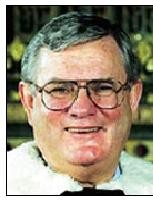
Finally, everybody (critics and supporters alike) was happy to agree, in substance, that the controversial measure "may" gravely violate Human Rights, and therefore, PACE asked Legal Experts of Venice Commission to check UK Government''s plans.
But this might take more than .. 42 Days to do, since PACE's Rapporteur asked the Experts to enlarge their study in a PanEuropean comparison of all that is happening on "anti-terrorism" legislation in 47 CoE Member Countries, including Russia, Turkey and Azerbaidjan..
Bad lack : "The existing 28 days’ detention without charge in the UK is, in comparison with other CoE member countries, one of the most extreme : In Turkey, the period is 7,5 days, in France 6 days, in Russia 5 days, and in .. the U.S. and Canada just 2 and 1 days respectively", denounced Democrat MEP Ms WOLDSETH from Norway..

"Numerous respected human rights organisations, including Liberty and Human Rights Watch, have expressed serious concern" "The proposed legislation ...could easily lead to extensive abuses. ...Detention for 42 days means six weeks in which one is taken away from one’s family, friends, home and livelihood only to be let off without being charged. That will destroy lives and isolate communities", she added.
- "3 years ago, the UK Government sought to increase the period of pre-charge detention from 14 days to 90 days. Not long before that, it had been only 7 days. There was a vigorous debate ...and a ...compromise was reached of 28 days. We have to ask whether there are proper safeguards in place to extend the period to 42 days. I suggest that there are fatal flaws", reminded British Conservative Clappison.
- "What sort of society holds someone in detention for 42 days and does not have to tell the person who is in prison why they are there, or explain the suspicions that arose and led to their detention? What sort of society believes that that is the way to treat its citizens? That is an appalling injustice, ...A 42-day detention period will not make the UK safer. Instead, it will be the first step to giving in to terrorists; it is saying that we are prepared to sacrifice our democratic rights and the principles for which we have stood for centuries", criticized British Liberal Michael Hanckock

"Comments made ...by Norwegian delegates are unfortunate", replied British Socialist MEP Ms.Curtis-Thomas, accusing them to "besmirch the reputation of our police force, which is one of the Best in the World", as she said, believing that "there are significant safeguards ...to ensure that individuals are not subjected to unlawful detention"

PACE "has serious doubts whether ...the draft legislation are in conformity with the ...case-law of the European Court of Human Rights. A lack of ..safeguards may lead to arbitrariness, resulting in breaches of ... liberty and ...right to a fair trial". PACE "is particularly concerned that: ..the judge ..may not be in a position to examine whether there exist reasonable grounds for suspecting that the arrested person has committed an offence;"; that "... representation by a lawyer may be inappropriately restricted or delayed;" that "information on the grounds for suspicion of a person ...may be unduly withheld.. ;" that this "may give rise to arrests without the intention to charge;", and; in general, that "prolonged detention without proper information on the grounds for arrest may constitute inhuman treatment", says Klaus De Vries' Report, adopted with 29 votes against zero.
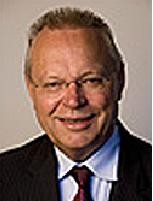
Records don't say if it took him 42 Days to draft his Report, but, at least, he knew why...
Polls
SMF Recent Topics SA
- Record Hospitalisati... (0) por Breadman
- How Many Infected by... (1) por Thunderbird
- Real Cause for Europ... (0) por Breadman
- Interesting Australi... (0) por Aurora
- Plus de mRNA Faux-&q... (0) por Aurora
- EU: Lukashenko as E... (0) por WKalina
- Why NATO in Ukraine,... (0) por Geopol
- Afghanistan's key : ... (0) por Thunderbird
- Anti-Pass Demonstrat... (0) por Aurora
- Veran - Fioraso : Mê... (1) por JohnsonE













